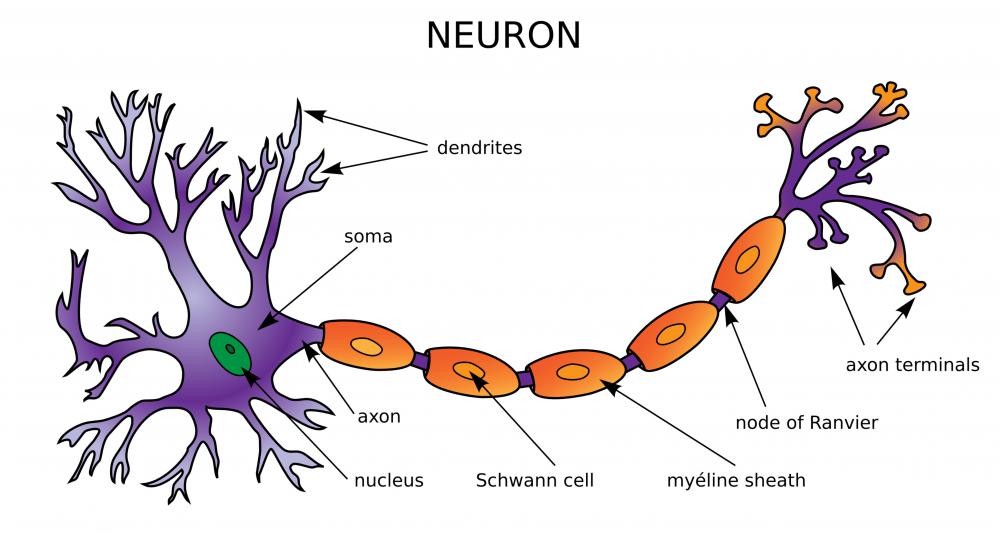At WiseGEEK, we're committed to delivering accurate, trustworthy information. Our expert-authored content is rigorously fact-checked and sourced from credible authorities. Discover how we uphold the highest standards in providing you with reliable knowledge.
What Is the Relationship between Neurotransmitters and Alcohol?
Neurotransmitters are tiny particles that are responsible for many feelings and emotions associated with a person's behavior. These chemical messengers can be affected by many things, including genetics, lifestyle, or particular experiences occurring at a given moment. Additionally, there is a link between neurotransmitters and alcohol, among other substances. Alcohol can raise and deplete levels of specific neurotransmitters, acting to both elevate or depress one's mood in a manner specific to the person and situation.
Some people may be more or less genetically inclined to experience the effects of neurotransmitters and alcohol. There has also been evidence through scientific research that alcohol dependency and addiction are strongly linked to genetics. Four primary neurotransmitter levels, along with individual sensitivity to alcohol, contribute to its effects.

The brain can be thought of as a collection of billions of miniature parts known as neurons. These cells can "talk" to each other through tiny spaces known as synapses. If the synapse was a telephone, the neurotransmitters are the words being exchanged. Just as saying something nice or saying something mean can cause different reactions in the person on the other end of the phone line, neurotransmitters can cause different reactions. The height of these levels are the driving force behind the reactions, and alcohol changes these levels.

The four neurotransmitters that are most susceptible to influence from alcohol are dopamine, GABA, endorphins, and glutamate. Neurotransmitters and alcohol are most directly linked through alcohol's effect on the levels of these substances. Sometimes, the levels are raised, and other times, the body's receptive properties are altered, increasing sensitivity.

Endorphins are the "happy" neurotransmitters, which can elicit euphoric feelings in those experiencing their rush. GABA is an acronym describing the neurotransmitter gamma-aminobutyric acid. Dopamine is a vital chemical responsible for other feelings of good vibes. Glutamate is involved with many cognitive tasks, such as speech and coordination.
When someone ingests alcohol, a number of immediate changes take place on a chemical level in the nervous system. GABA's increased sensitivity may cause a decrease in anxiety and a calm feeling. Endorphin levels are also known to rise when people consume alcohol. Dopamine, in a similar fashion as other neurotransmitters, is also directly related to alcohol in concentration. Glutamate, which can help someone perform motor activities, is inhibited during the consumption of alcohol and can cause an impairment of the ability to perform basic tasks otherwise taken for granted.

The fact that the relationship between neurotransmitters and alcohol can drive so many changes explains why a complete reaction cannot be predicted. Sometimes, a person may be a delightful guest, while other times, alcohol may cause a violent nightmare. Understanding the way brains and bodies react to substances can bring light to the subject of substance consumption.
AS FEATURED ON:
AS FEATURED ON:

















Discuss this Article
Post your comments